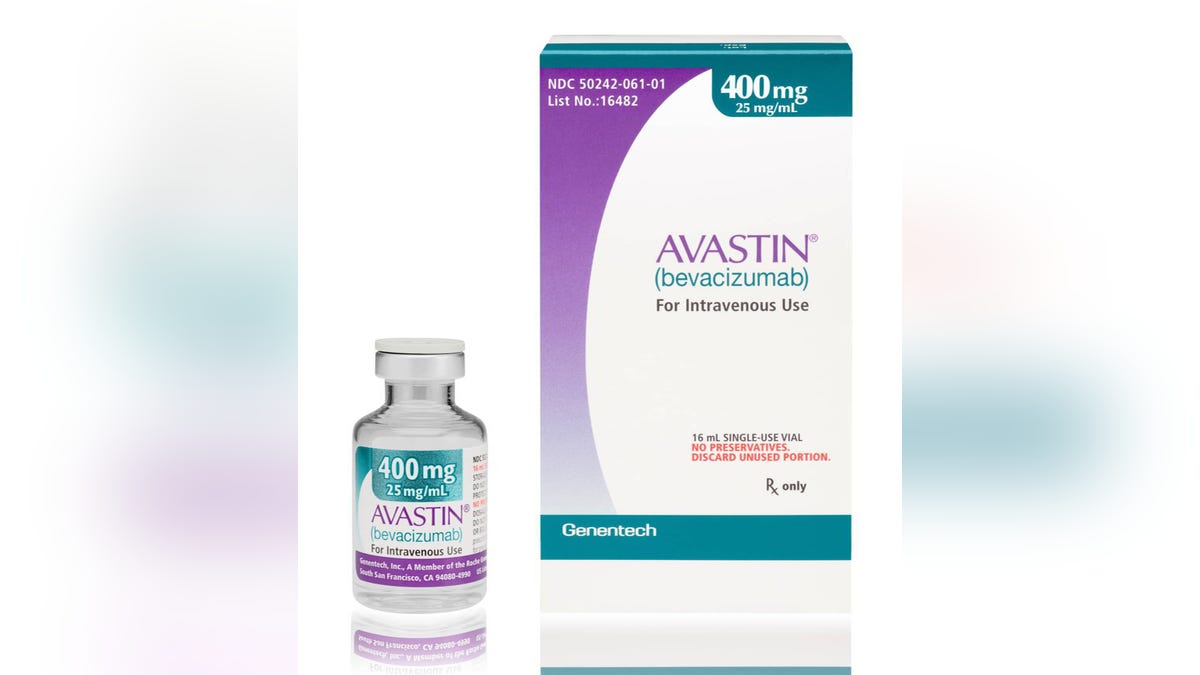
This product image provided by Genentech shows a vial and package for the cancer drug Avastin. The maker of Avastin is warning doctors and patients about counterfeit vials of the product distributed in the U.S. Roche's Genentech unit says the fake products do not contain the key ingredient in Avastin, which is used to treat cancers of the colon, lung, kidney and brain. (AP/Genentech)
LONDON – Authorities are investigating whether counterfeit packs of the cancer drug Avastin found on the US market came from an Egyptian supplier, according to the UK's medical regulator, amid a global effort to track the origins of the fake product that has spooked cancer doctors and patients.
One of the European wholesalers involved in trading the fake product, meanwhile, said it had been unaware that the drug wasn't real, and added that it was beefing up its system for checking the quality of the medicines it trades.
The wholesaler, Denmark's CareMed ApS, said it was making the changes on the orders of Denmark's medical regulator. CareMed added that it has heard reports that the fake medicine might have originated in Egypt or Turkey.
Avastin's maker, Roche Holding AG, said this week it had warned doctors, hospitals and patient groups that a counterfeit version of the medicine has been found in the U.S. It isn't clear how much of the counterfeit product was distributed in the U.S. or whether it has caused any harm. Roche's U.S. unit, Genentech, says it doesn't know whether any patients were given the fake drug.
The Food and Drug Administration is investigating, and has sent letters to 19 medical practices, mostly in California, but also in Texas and Illinois, that the agency says buys unapproved cancer medicines and might have bought the counterfeit Avastin.
The appearance of counterfeit Avastin highlights a rising threat: fakes of costly injectable therapies, rather than simple pills such as Viagra. The FDA recently alerted doctors and other health-care providers about the risk of "non-FDA-approved injectable cancer medications," including unauthorized versions of Herceptin, Rituxan and Neupogen, that were being marketed and sold to clinics and "most likely were administered to patients."
The counterfeit Avastin traveled through wholesalers in Switzerland, Denmark and the U.K. before landing in the U.S., according to medical regulators and CareMed. But regulators are still trying to determine where the fake drug was originally produced.
"One of the lines of inquiry involves following up on the possibility that the Avastin came via an Egyptian supplier," the U.K.'s Medicines and Healthcare products Regulatory Agency, or MHRA, said in an email.
The MHRA added that the packaging, vials and vial labels on the fake Avastin were all counterfeit, and that they included "incorrect expiry dates and fake batch numbers." A spokeswoman for Genentech referred questions to the FDA on Friday. The FDA couldn't immediately be reached to comment.
When the fake product was tested, it was found to contain no bevacizumab, the active ingredient in Avastin.
The MHRA said it has confirmed that Denmark's CareMed sold the fake product to River East Supplies Ltd., a U.K. wholesaler. In a telephone interview, Casper Tingkaer, managing director of CareMed, said the company bought the product from Hadicon AG, a Zug, Switzerland, wholesaler. CareMed shipped the goods directly to River East in Britain, he said. "We never saw the goods or inspected the goods," Tingkaer said. Later, River East informed CareMed that there was something wrong with the product, he said.
CareMed was "quite shocked," he said. "We contacted Hadicon and said, what is going on here? What have you supplied? They said, 'We don't know.' And they said we'd better recall" the product, Mr. Tingkaer said. River East, CareMed and Hadicon contacted regulators in their respective countries, Mr. Tingkaer said, which set off the global alarm.
Narinder Kaulder, head of operations at River East, declined to comment when contacted by phone.
Click here to read more on this story from the Wall Street Journal.




















